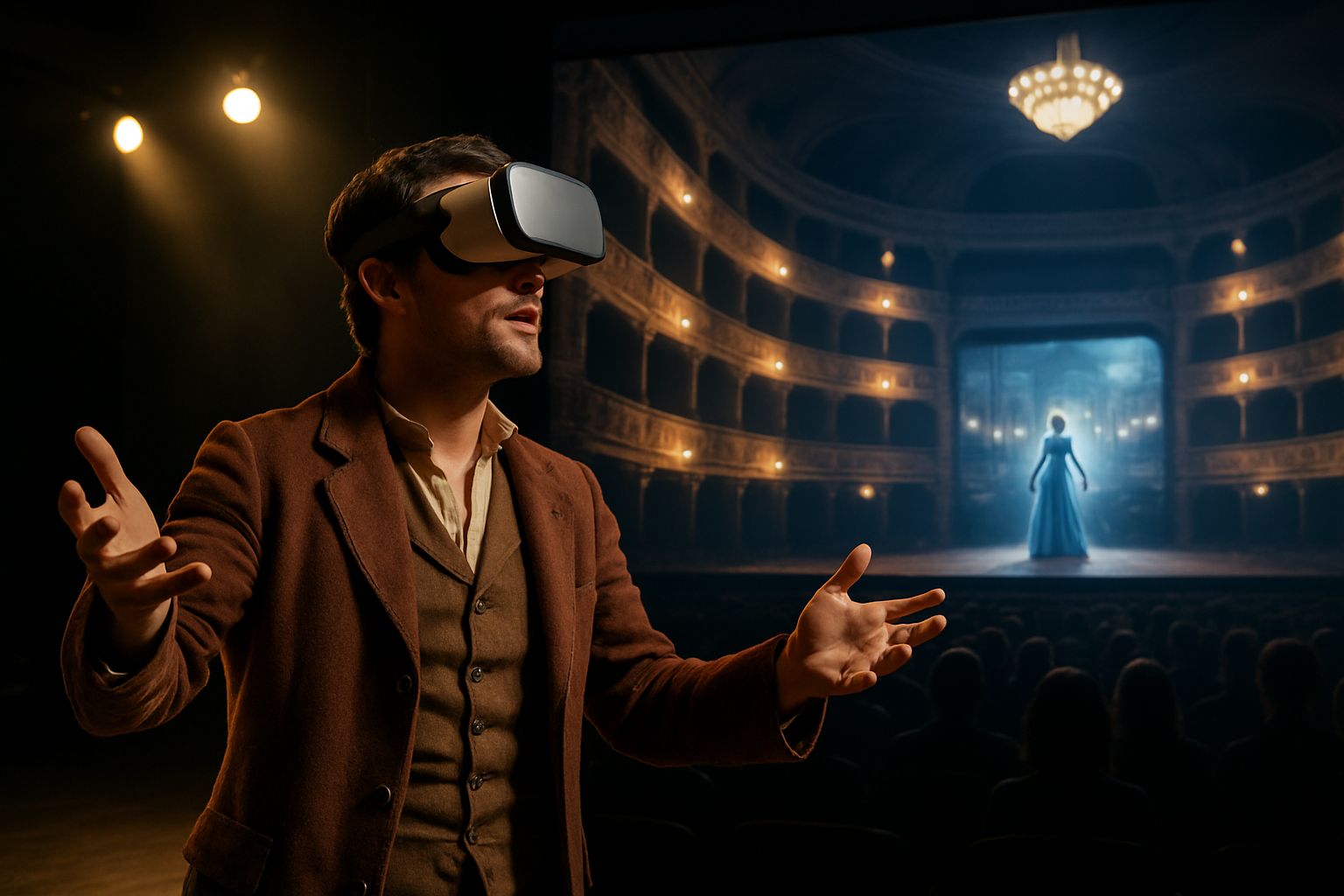Avant-Garde Opera: Pushing Boundaries in the Digital Age
Opera's digital renaissance reshapes a centuries-old art form, merging tradition with technology to create groundbreaking performances. From virtual reality productions to AI-composed arias, avant-garde opera challenges conventional notions of storytelling and audience engagement. This fusion of classical artistry and cutting-edge innovation is redefining the operatic experience, attracting new audiences, and sparking debates about the future of this enduring genre.

Virtual Reality Operas: Immersive Storytelling
One of the most exciting developments in avant-garde opera is the integration of virtual reality (VR) technology. VR operas transport audiences into fully immersive, 360-degree environments, allowing them to experience performances from multiple perspectives. Pioneering works like Michel van der Aa’s Eight have demonstrated the potential of this medium, offering viewers the ability to move through virtual landscapes and interact with the narrative in unprecedented ways.
AI-Composed Operas: Machine Learning Meets Musical Creativity
Artificial intelligence is making its mark on opera composition, with AI algorithms being used to generate musical scores and even entire libretti. Projects like Beyond the Fence, which utilized machine learning to create a West End musical, have paved the way for similar experiments in opera. While some purists argue that AI-composed works lack the emotional depth of human-created pieces, proponents see it as a fascinating new frontier in musical creativity.
Augmented Reality in Live Performances
Augmented reality (AR) technology is enhancing live opera performances by overlaying digital elements onto the physical stage. This allows for dynamic set changes, fantastical visual effects, and interactive elements that respond to performers’ movements in real-time. The use of AR in opera productions offers a middle ground between traditional staging and fully virtual experiences, creating a hybrid form that combines the best of both worlds.
Networked Performances and Global Collaborations
The digital age has enabled unprecedented levels of collaboration among opera artists worldwide. Networked performances, where singers and musicians in different locations perform together in real-time, have become increasingly sophisticated. These technologically enabled collaborations not only break down geographical barriers but also allow for unique artistic partnerships and cultural exchanges that were previously impossible.
The Audience as Participant: Interactive Opera Experiences
Avant-garde opera is redefining the role of the audience, transforming passive viewers into active participants. Interactive productions allow spectators to influence the narrative, choose different storylines, or even contribute to the musical composition through smartphone apps or motion-sensing technology. This participatory approach challenges traditional notions of authorship and performance, creating a more engaged and personalized operatic experience.
The Future of Opera in a Digital World
As avant-garde opera continues to push boundaries and embrace new technologies, it raises important questions about the nature of artistic expression and the role of tradition in a rapidly changing world. While some critics worry that these innovations may dilute the essence of opera, others see them as necessary adaptations that will ensure the art form’s survival and relevance in the 21st century. As the lines between technology and art continue to blur, one thing is certain: the opera of tomorrow will be a far cry from the productions of the past, offering exciting new possibilities for creators and audiences alike.




